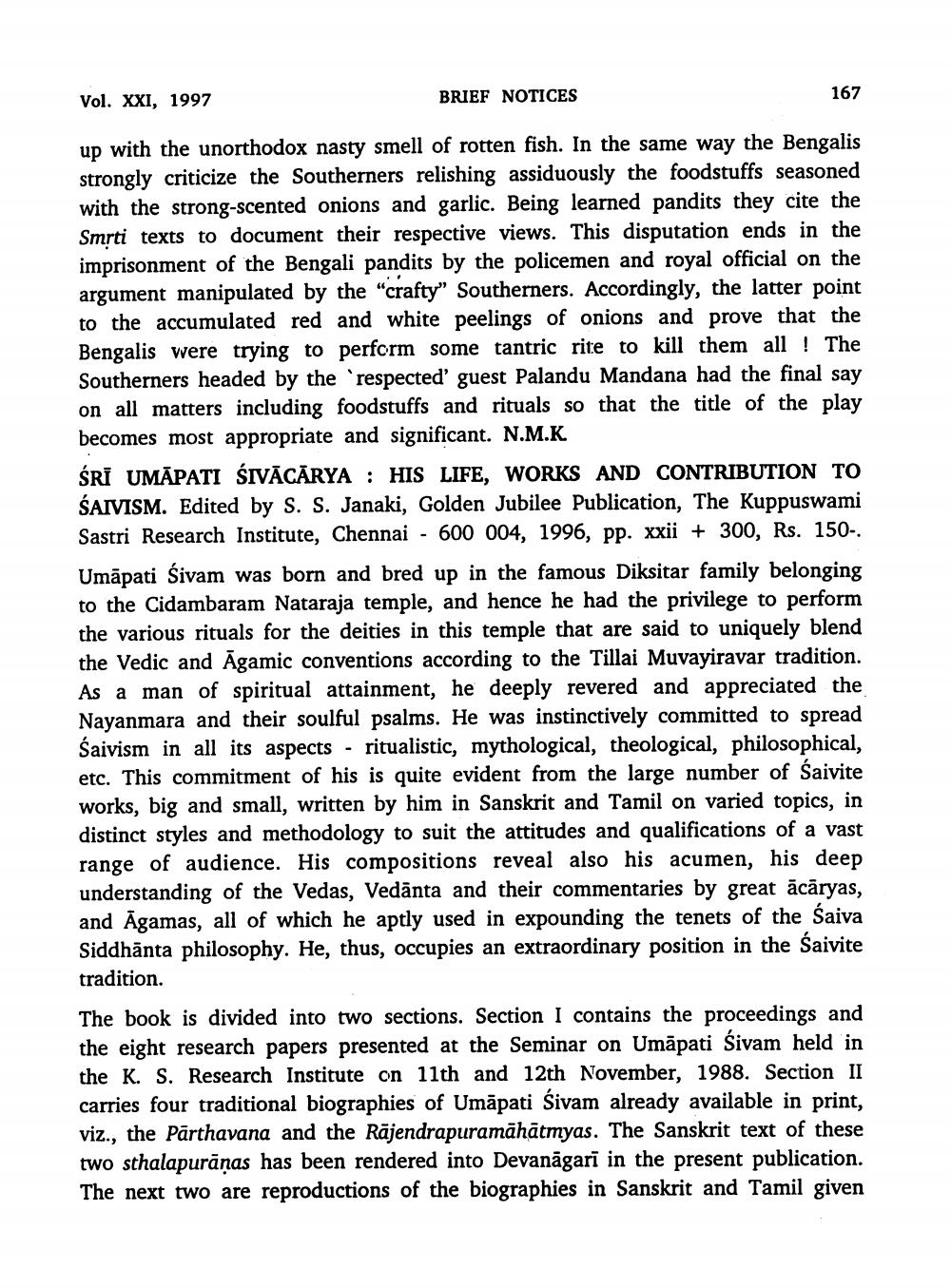________________
Vol. XXI, 1997
BRIEF NOTICES
167
up with the unorthodox nasty smell of rotten fish. In the same way the Bengalis strongly criticize the Southerners relishing assiduously the foodstuffs seasoned with the strong-scented onions and garlic. Being learned pandits they cite the Smrti texts to document their respective views. This disputation ends in the imprisonment of the Bengali pandits by the policemen and royal official on the argument manipulated by the "crafty" Southerners. Accordingly, the latter point to the accumulated red and white peelings of onions and prove that the Bengalis were trying to perform some tantric rite to kill them all! The Southerners headed by the ‘respected' guest Palandu Mandana had the final say on all matters including foodstuffs and rituals so that the title of the play becomes most appropriate and significant. N.M.K. ŚRĪ UMĀPATI ŚIVĀCĀRYA : HIS LIFE, WORKS AND CONTRIBUTION TO SAIVISM. Edited by S. S. Janaki, Golden Jubilee Publication, The Kuppuswami Sastri Research Institute, Chennai - 600 004, 1996, pp. xxii + 300, Rs. 150-. Umāpati Śivam was born and bred up in the famous Diksitar family belonging to the Cidambaram Nataraja temple, and hence he had the privilege to perform
he various rituals for the deities in this temple that are said to uniquely blend the Vedic and Āgamic conventions according to the Tillai Muvayiravar tradition. As a man of spiritual attainment, he deeply revered and appreciated the Nayanmara and their soulful psalms. He was instinctively committed to spread Śaivism in all its aspects - ritualistic, mythological, theological, philosophical, etc. This commitment of his is quite evident from the large number of Saivite works, big and small, written by him in Sanskrit and Tamil on varied topics, in distinct styles and methodology to suit the attitudes and qualifications of a vast range of audience. His compositions reveal also his acumen, his deep understanding of the Vedas, Vedānta and their commentaries by great ācāryas, and Āgamas, all of which he aptly used in expounding the tenets of the saiva Siddhānta philosophy. He, thus, occupies an extraordinary position in the Saivite tradition.
The book is divided into two sections. Section I contains the proceedings and the eight research papers presented at the Seminar on Umāpati Sivam held in the K. S. Research Institute on 11th and 12th November, 1988. Section II carries four traditional biographies of Umāpati Sivam already available in print, viz., the Pārthavana and the Rājendrapuramāhātmyas. The Sanskrit text of the two sthalapurānas has been rendered into Devanāgarī in the present publication. The next two are reproductions of the biographies in Sanskrit and Tamil given




